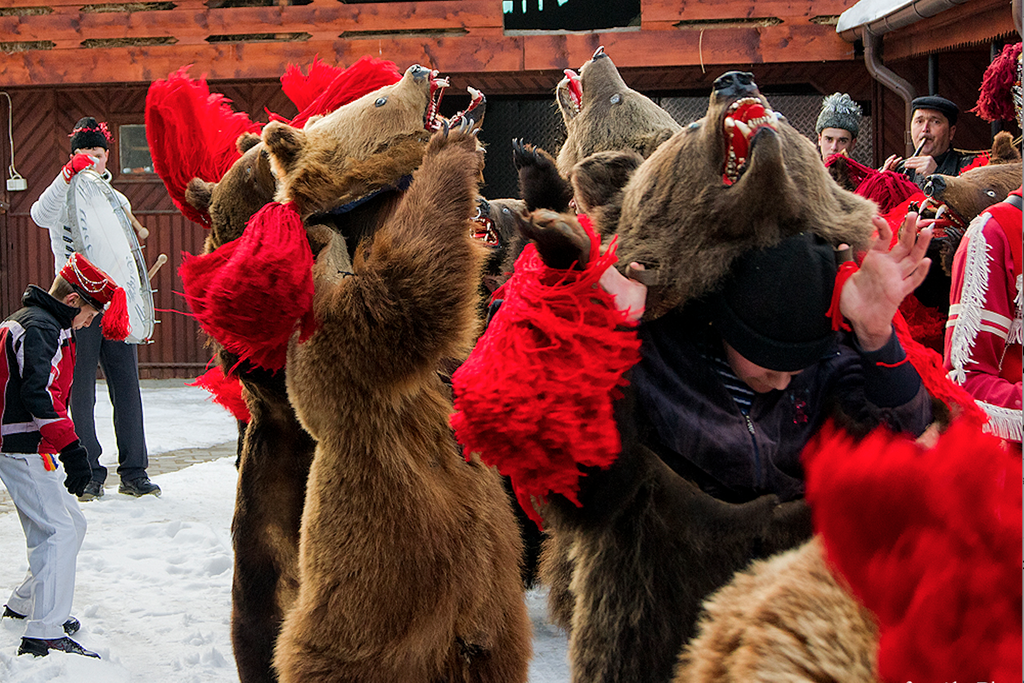Seven (7) Unique New Year’s Traditions In The World

Tet is one of the most important holidays of the year for many peoples and cultures around the world. On this day, besides fireworks and alcohol, some countries also have very unique New Year’s customs. So what are those customs? Let’s find out with us.
1. Spain: The faster you eat grapes, the luckier you are
During the transition between the new year and the old year, Spanish people besides drinking to congratulate each other, they also have the traditional custom of eating green grapes and eating as quickly as possible. With this custom, there will be 12 bunches of grapes representing the 12 months of the next year, expressing the wish for a sweet and smooth new year.
And the grape must be a seed grape, if it is a seedless grape it is too easy and considered cheating.
2. Czech Republic predicts the new year with apples
For people in the Czech Republic, on Christmas Eve or New Year’s Eve, everyone in the family gathers around the dinner table and an apple is cut in half. Czechs believe that if the core of an apple is in the shape of a star, that year those present will have good health and good luck. If the apple is the cross, I’m afraid someone will not be well that year.
People in the Czech Republic believe that the shape of the apple core after cutting will determine a person’s luck in the new year
3. Colombia: Running around with suitcases
Colombians have a burning passion for traveling the world. Therefore, the year-end tradition of this country is to run around a rock with a suitcase with the desire to travel to many places in the new year, learn more interesting things. And of course this suitcase is for illustrative purposes only, there is nothing in it, otherwise you will have to work hard to bring it.
4. Germany: Watching black and white movies over and over again
Like other countries in the world, at the beginning of the new year, in addition to fireworks, champagne and family reunions, in Germany there are many special customs such as putting molten lead in a bowl of cold water, the shape of lead will change. Lucky prediction for the new year. In addition, a portion of food on New Year’s Eve will be left on the plate until midnight to symbolize that food will always be abundant in the coming year.
Germans however like to watch black and white comedies
Besides, starting in 1970, at New Year’s Eve, German people often watch the program “Dinner for one”. This is a British black and white comedy film and was shot in Germany in 1963 and the movie has almost nothing to do with the New Year.
5. Hungary: Do not wash clothes during Tet
In Hungary, New Year’s Eve is called ‘Silvester’. Like other countries, Hungary also has many interesting customs on this New Year’s Day such as making noise to ward off evil spirits; Absolutely do not wash clothes on New Year’s Day if you don’t want to have a lot of bad luck next year.
Hungarians believe not to wash clothes on New Year’s Day to avoid bad luck next year
The concept of welcoming the new year of Hungarians has many similarities with Asians such as the fact that the first guest to enter the house in the new year is a man, which is considered lucky for the family in that year. On the contrary, if that person is a woman, it is very unfortunate. Also, washing your face with cold water with an apple cut in half at the beginning of the new year will help you have more health.
6. Romania: Dancing on a real bear skin
In order to avoid being harassed by evil spirits, on Christmas Eve and New Year’s Day, the Romanian people devised a way to wear a real bear skin and dance, roll and roll until exhausted, then return to health, represents the coming of spring.
7. Scotland: Belief in people who bring good luck
Scots and other parts of the UK also have a rather ‘superstitious’ belief that is based on the first person to enter the house. If it is a man with black hair, carrying dishes and carrying coal, in the new year, the whole family will be very warm, happy, with no shortage.
On New Year’s Day, Scottish children also get up early, visit neighbors and sing traditional songs. In return for that enthusiasm, the host will give them coins, cakes, apples, and other sweets.









